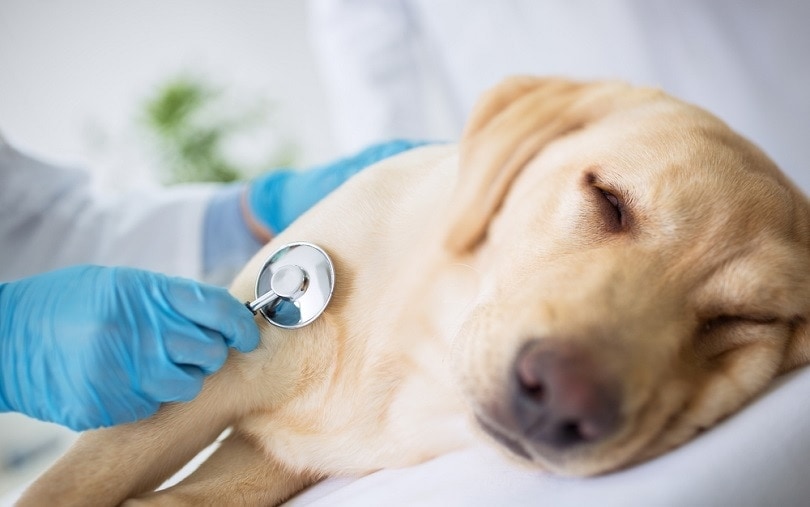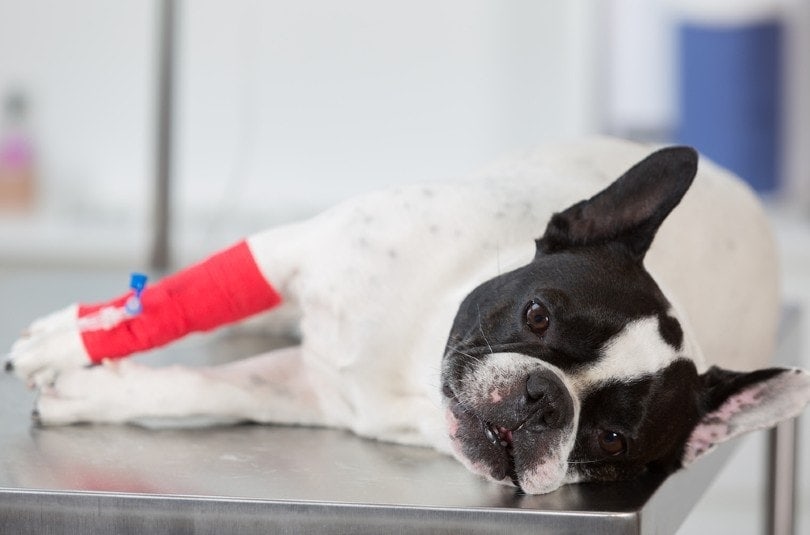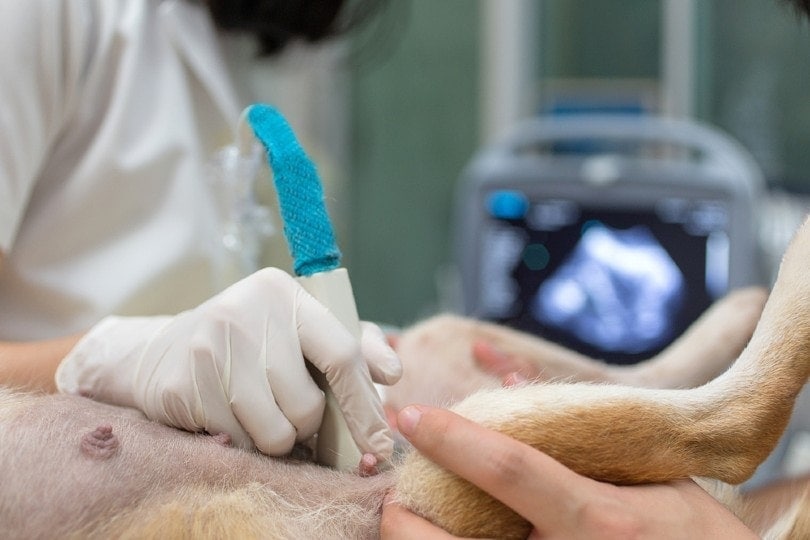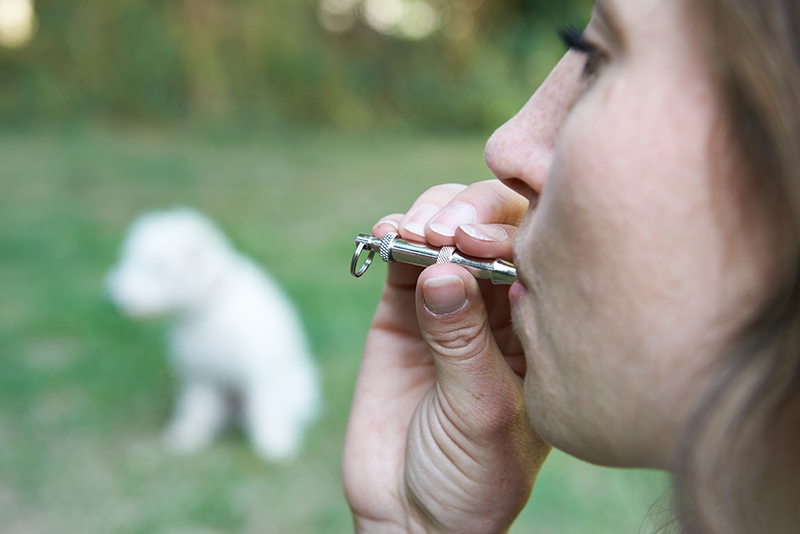Average Cost of a Vet Visit for Dogs in 2024: Updated Price Guide

Updated on

From food to toys and accessories, the cost of owning a dog can quickly add up. When you add in veterinary visits, it can become surprisingly expensive. Most people make the mistake of assuming that owning a dog is inexpensive — just buy a few toys and budget for food costs, and you’re good to go. But there are more costs that need to be taken into consideration — most importantly, the costs concerning your dog’s health and well-being.
From vaccinations to routine checkups and possible injury or illness, your dog will need to go to a vet from time to time, and it’s best to plan and budget for these costs beforehand. In this article, we look at the average cost of vet visits for your pooch and roughly what you can expect to pay, so you can plan accordingly. Let’s dive in!
How Much Is a Vet Visit for a Dog?
The cost of a vet visit for your dog can vary widely depending on the context. Is your dog simply going in for a routine checkup, or is there something more serious at hand? Aside from routine vaccinations, your dog will need to go for regular checkups at least once or twice a year, and you can expect to pay between $50-$100 per visit.
Over time, visits to the vet can really add up. If you're looking for a good pet insurance plan that won't break the bank, you may want to look at Lemonade. This company offers adjustable plans customized to your pet's needs.

Depending on your dog’s age and condition, your vet may recommend additional diagnostics, including a biochemistry profile and thyroid hormone testing. For older dogs, these may include additional X-rays to check for any joint degeneration.
Standard Vet Procedures Regional Pricing Sheet
| Procedure | West Coast | Midwest | East Coast |
| Office Visit | $50.95 | $47.95 | $57.95 |
| Rabies Shot | $24.54 | $23.66 | $26.08 |
| Professional Teeth Cleaning | $317.95 | $300.95 | $347.95 |
| Neuter package (6+ months) | $453.95 | $406.95 | $448.95 |
| Neuter package (less than 6 months) | $389.95 | $348.95 | $384.95 |
| Spay package (6+ months/50+ pounds) | $548.95 | $491.95 | $541.95 |
| Spay package (6+ months/less than 50 pounds) | $478.95 | $428.95 | $472.95 |
| Spay package (less than 6 months) | $415.95 | $372.95 | $410.95 |
Source: https://www.banfield.com/Services/price-estimator
 Additional Vet Costs for Dogs
Additional Vet Costs for Dogs
If your vet discovers anything out of the ordinary during a routine checkup, there will likely need to be additional tests and thus, additional costs. In general, your vet will only need to perform additional tests if they need to narrow down the issue with your dog so they can prescribe a sufficient treatment. Sometimes, though, they may know what’s wrong right away. Still, there may be a procedure or medication that is required, which can result in extra costs.

What to Expect Financially From an Emergency Vet Visit
If your dog has an emergency, the bill can potentially run into the thousands of dollars, depending on the situation. This will be even more expensive if your dog needs emergency care after hours. Your dog may need additional tests, which can be expensive, or they may go straight into treatment.
Remember that these prices will vary depending on your dog’s age and breed. This is because older dogs and large breeds are more difficult to care for than younger, smaller breeds.
Which Vet Bills Do Pet Insurance Companies Cover?
It’s important to adequately research what a pet insurance company offers in their plan before signing up, so you are not in for any surprises. Every pet insurance company has varying plans with different pricing, but they should all offer you peace of mind knowing that your dog is covered.
Depending on your provider, you can get comprehensive, “nose-to-tail” coverage that covers a wide range of vet bills, but this will be the most expensive plan.
Alternatively, you can choose a less expensive policy with fewer benefits. Some policies may only cover basic veterinary care or only accidents and illnesses, and these can be as little as $5-$10 per month. Some companies allow you to personally tailor your policy. Whatever you choose, make sure your provider is clear about exactly what is covered, so you know exactly what to expect during a vet visit.
How Often Should Dogs Go To the Vet?
Generally speaking, all dogs should have a general checkup with a vet at least once a year. Puppies will need to go more often — every 2-3 months or so — because they’ll need vaccinations and checks for parasites. An annual wellness exam is an essential part of routine health maintenance for your dog, as important as good nutrition, regular exercise, and training. It can help prevent illness and disease that could end up costing much more if left unchecked.
Senior dogs, like puppies, need more regular checkups. Older dogs are more prone to disease and injury and should have a checkup at least twice yearly. Your vet will usually run diagnostic tests that will help indicate any issues in the future, since they’ll have a clear indication of what your dog’s baseline is.
Conclusion
The cost of vet visits is an essential and unavoidable part of owning a dog, and there is no way of getting around the fact that it can be expensive at times, which is why dedicated pet insurance can be so helpful. Emergency visits can quickly add up to thousands of dollars, and even routine visits can get expensive. Remember that the age and breed of your dog will also play large parts in the costs involved, so it helps to be prepared.
Your dog is a part of your family, and along with initial costs and things like food and toys, regular veterinary care is an essential expense that should not be overlooked. It’s always essential to evaluate your financial situation, your time, and your dedication before buying a pooch. One thing is for sure, though, the joy that your four-legged friend brings you is certainly worth the cost!
Featured Image Credit: Ruth Black, Shutterstock

 Additional Vet Costs for Dogs
Additional Vet Costs for Dogs









